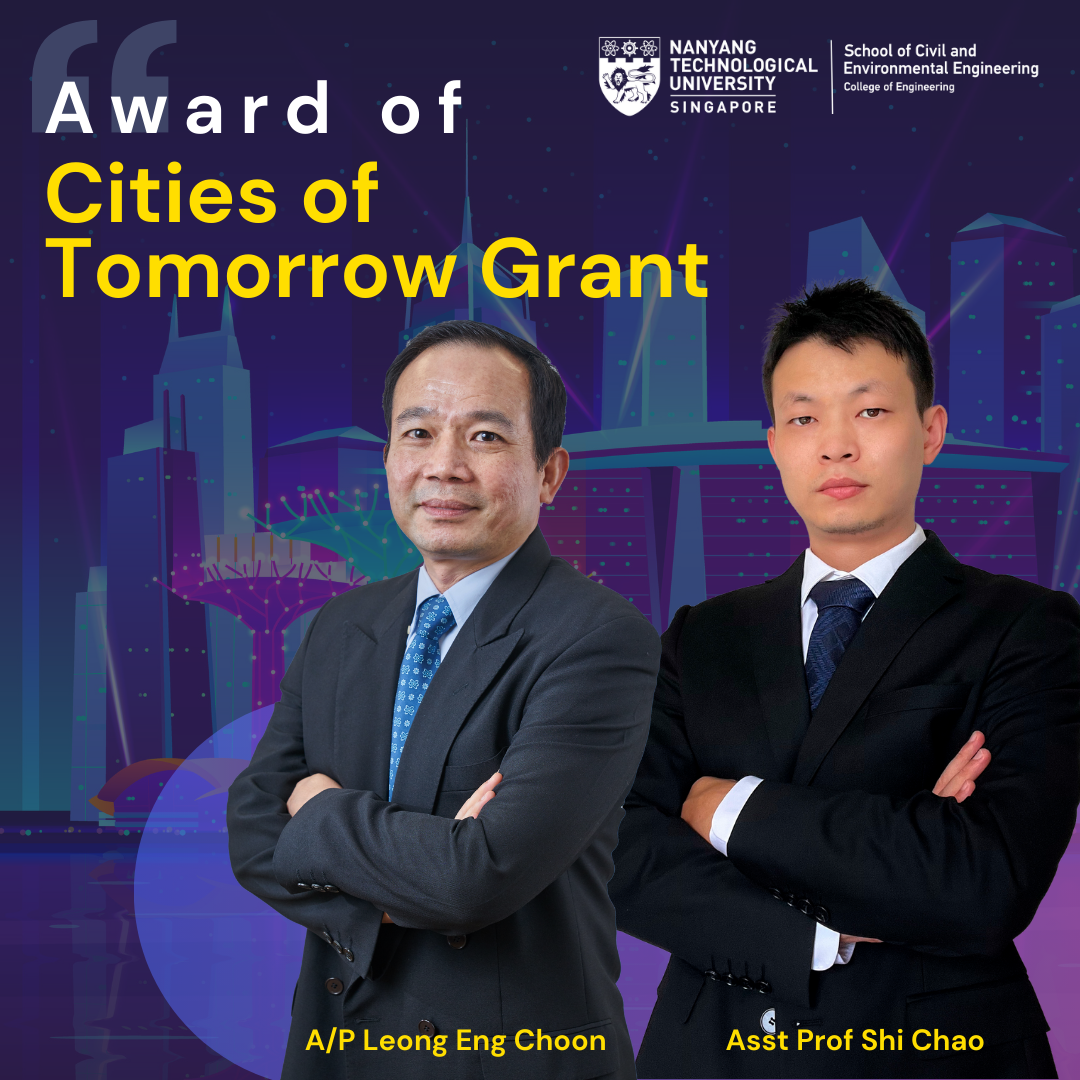Award of Cities of Tomorrow Grant - Associate Professor Leong Eng Choon & Assistant Professor Shi Chao
Congratulation to Associate Professor Leong Eng Choon and Assistant Professor Shi Chao on the award of Cities of Tomorrow Grant for their projects.

About Cities of Tomorrow Grant
There are six strategic thrusts under the Cities of Tomorrow R&I Framework:
| Advanced Construction | Resilient infrastructure & Smart Facilities Management | Sustainable Built Environment | New Spaces | Liveable & Healthy Cities | City in Nature |
|
|
|
|
|
|
Associate Professor Leong's project: Tree-Root Anchorage and Non-Destructive Tests is under the City in Nature strategic thrust.
Project Write-up
In Singapore’s urban landscape, trees are often confined to limited planting spaces, both at ground level and increasingly in innovative skyrise and rooftop environments. These spaces are shaped by urban infrastructure—walkways, pavements, drainage systems, and more—restricting the natural growth of tree roots. Despite the vital role trees play in creating resilient, sustainable cities, the complex interactions between mature tree roots, and urban structures are still under-researched.
This project aims to transform our understanding of these interactions, utilizing non-destructive testing to map root architecture and assess anchorage strength. By generating insights that inform tree-care practices and policy, this project supports the development of safer, greener urban ecosystems, ensuring that the well-being of Singapore's urban trees thrives even amidst the challenges of climate change.
Assistant Professor Shi Chao's project: A Multi-Source Data Fusion Approach for Multi-hazard Perception and Risk Mitigation in TBM Tunnelling is under the New Space strategic thrust.
Project Write-up
This project aims at developing a multi-source data fusion framework that harnesses emerging machine learning technologies to uncover the intricate interrelationships among site investigation (SI), instrumentation and monitoring (I&M), and tunnel boring machine (TBM) operation data for multi-hazard identification and risk mitigation in TBM tunnelling. Conventional approaches primarily rely on massive TBM streaming data alone to perceive and predict tunnel ahead geology and identify construction risks, and the valuable SI and I&M data have not been effectively utilized for geohazard detection.
This project will develop efficient and data-centric algorithms to seamlessly integrate SI, I&M, and TBM data for ensemble perception and prediction of geohazards in TBM tunnelling. The outcomes from this this study will immediately contribute to tackling present challenges encountered during TBM tunnelling in Singapore, such as over-excavation and sinkholes.














/enri-thumbnails/careeropportunities1f0caf1c-a12d-479c-be7c-3c04e085c617.tmb-mega-menu.jpg?Culture=en&sfvrsn=d7261e3b_1)

/cradle-thumbnails/research-capabilities1516d0ba63aa44f0b4ee77a8c05263b2.tmb-mega-menu.jpg?Culture=en&sfvrsn=1bc94f8_1)






